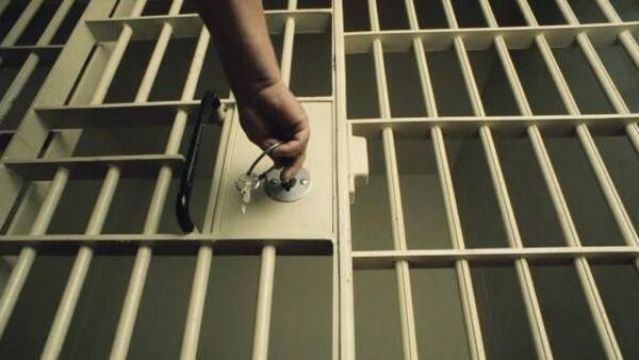A man who served a sentence for stabbing another man to death has been returned to jail after he attacked a woman just three weeks on from his release.
In July 2019, Blake Sweeney (26) of Fertha Drive, Cahersiveen, Kerry, was acquitted of murder but convicted of the manslaughter of Robert Elston (33) of Lisselton at Fertha Drive on May 23rd, 2018. Sweeney had offered to plead guilty to manslaughter, but the Director of Public Prosecutions refused to accept the plea.
Sweeney was sentenced to eight years and six months imprisonment with the last 18 months suspended, backdated to May 23rd, 2018, when he went into custody.
The court heard on Monday that Sweeney had been arrested for assaulting a woman three weeks after he was released from prison and had pleaded guilty to the offence.
The State applied for the activation of the suspended portion of Sweeney’s manslaughter sentence under Section 99 of the Criminal Justice Act resulting from his conviction.
A prosecuting garda told the court that a bench warrant had been issued for Sweeney earlier this year after he failed to appear in court. He was subsequently arrested and brought before Mr Justice Tony Hunt at a special sitting of the court in August and was remanded in custody until Monday.
Seamus Clarke SC, for Sweeney, suggested to Mr Justice Hunt that the court might be minded to impose part of the suspended portion of the sentence and leave the other partly suspended. He said the defendant has been engaging well in custody and is off drugs.
“The problem is he was given an allowance to show he could do well in the community, and he has fallen short on every aspect,” said Mr Justice Hunt, adding Sweeney had been convicted of a “very serious offence”.
“Why should I give any allowance?” the judge said. “The definition of insanity is doing something over and over again and expecting different results. Why should this be any different.”
“He was only out three weeks and that’s a curse to me but he’s young,” said Mr Clarke. “I’d ask the court just to give him something in the balance in not reactivating all of the sentence.”
Mr Justice Hunt said the only thing that resonated with him was that the triggering offence was not at the top end of the scale.
“There’s very few other grounds for sympathy or leniency in the case,” he said. “That being the case I’m going to activate a lot of it.”
The judge said he would activate 12 months of the remaining 18-month suspended sentence. He backdated this to August 27th when Sweeney went into custody.
“That’s the very best I can do and I’m only doing that on the basis that this might have been triggered by something worse,” said the judge, adding that if Sweeney was back before the courts for anything “other than the most trivial reason”, he would serve the final six months of the sentence.
Mr Justice Hunt backdated the activated 12 months to August 27th when Sweeney went into custody.
Sentencing Sweeney at the Central Criminal Court in November 2019, Mr Justice Hunt said there was no need for the defendant to arm himself with a knife and great harm had been done, with a young man losing his life.
"His mother's wiser counsel did not prevail at the time," noted the judge, adding that she saw her son searching for a knife in the kitchen press after the deceased set fire to a car in the Sweeney family's driveway and told him to stay at home.
However, the judge said there was no reason to believe that Sweeney would have "taken up arms" that night but for the conduct of the deceased man.
Mr Justice Hunt said this was a "tragic case", where the defendant had pursued the deceased with a knife and the full defence of self-defence was not available to him. The judge said he understood the jury's verdict to mean that the force used by Sweeney was "reasonably proportionate" to the circumstances of the case.
The judge said for reasons that remained "totally unclear", Mr Elston had left a house armed with an axe before he banged on the Sweeney's door and started a fire. Sweeney was asleep in the front room of his home and a family member had tried to put out the fire which constituted serious danger, said Mr Justice Hunt.
Deputy State Pathologist Dr Linda Mulligan told the trial that the cause of death was two stab wounds and in particular noted one to Mr Elston's back that entered to a depth of 18cm (six inches) and severed the aorta.







